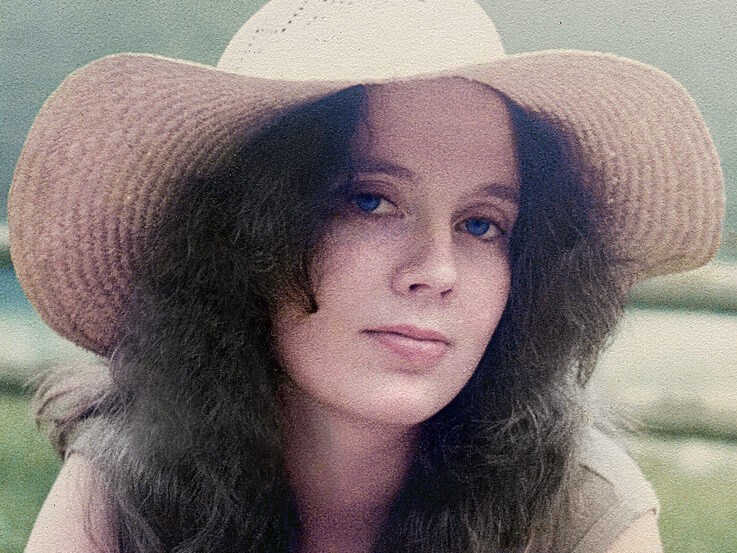Lifestyle
15 Things You Took for Granted When You Were Young

When you’re young, life feels abundant. There’s time, energy, people, and dreams. It’s only with age that you begin to realize how temporary and precious those things really were. The everyday moments you barely noticed then are often the ones you wish you could return to. Here are 15 things many people don’t realize they’ll miss until it’s too late.
Endless Energy

Waking up refreshed without coffee, running for hours, pulling all-nighters without consequences — it all felt normal when you were young. You didn’t have to think twice about physical endurance or recovery. As you grow older, even simple tasks require pacing, rest, and consideration. The energy that once seemed bottomless slowly fades, and with it goes the carefree movement that youth allows.
Eating Without Regret

Ordering a greasy burger, finishing an entire pizza, or eating dessert just because it looked good rarely came with consequences. You didn’t feel sluggish afterward, your stomach didn’t protest, and your metabolism took care ofeverything. Over time, your body becomes more sensitive. The freedom to eat what you wanted, when you wanted, now feels like a luxury you never appreciated enough.
Time to Dream Without Pressure

Back then, every plan felt possible. You could imagine yourself traveling the world, switching careers, or chasing a passion project. The sense of time being on your side made dreams feel more accessible. As responsibilities pile up, it’s not that dreams become impossible, but they begin to feel more distant. The pressure of adult life can push imagination aside before you realize it.
Friendships That Came Easily

In your youth, friendships were part of your daily life. School, clubs, and shared hangouts made connection effortless. You didn’t have to plan two weeks in advance or sync calendars. As you get older, maintaining friendships becomes harder. Work, family, distance, and time all create barriers. Many of those spontaneous, soul-deep connections fade, not because of lack of love, but lack of time.
Your Parents Being a Constant Presence

You called, visited, or even took them for granted because they were always there. Their advice may have been annoying, but their presence was consistent. With age, that presence changes. Whether from distance, illness, or loss, the moments when you could just pick up the phone start to dwindle. You realize too late that they were the anchor to much of your world.
Living Without Pain

Whether you slept on the floor, lifted something heavy, or walked for miles, your body didn’t complain. You bounced back quickly, rarely noticed your joints, and didn’t think twice about how you moved. Eventually, your body starts reminding you that it has limits. Pain becomes something to manage. The freedom of living without aches is one of the quietest things you lose.
The Magic of Firsts

Your first kiss, your first apartment, your first road trip with friends — those experiences had a sense of wonder and possibility. You were nervous and excited but mostly unjaded. Over time, firsts become rarer, and the freshness they bring with them gets harder to find. You might still experience new things, but the awe of discovering the world for the first time is unique to youth.
Taking Big Risks Without Fear

You could start a new job, move cities, or end relationships with the belief that everything would work out. The risk felt exciting, not paralyzing. As you age, risk starts to carry more weight. You worry about consequences, stability, and the impact on others. The boldness of youth isn’t just about courage — it’s about having little to lose, which fades with time.
A Fast Metabolism

You could indulge in fast food, sugary snacks, or late-night meals and barely see a difference in your body. Your weight remained stable, and digestion just worked. Eventually, your metabolism slows down. Gaining weight happens faster, and losing it takes real effort. You become more conscious of what you eat, and the days of effortless maintenance feel like a distant memory.
Truly Free Summers

There were months when you had no responsibilities beyond fun. Summer meant sleepovers, staying out late, and enjoying the sunshine without checking emails or paying bills. As an adult, summer blends into the rest of the year. Time off is limited, and freedom feels scheduled. You don’t realize those carefree stretches of time were rare gifts until they’re long gone.
Falling Asleep Instantly

You could close your eyes anywhere and drift into sleep without effort. Now, sleep comes slowly. You think about work, responsibilities, aches, or random worries. You scroll through your phone, trying to feel tired. Sleep becomes something you have to earn or manage instead of something that just happens when you need it.
The Security of Home

You may have resented curfews or chores, but home meant protection. Someone cooked for you, washed your clothes, and kept the lights on. It was your safe place. When you grow up, you become the one providing that comfort, and the burden of responsibility replaces that feeling of security. Home changes — and sometimes, it disappears entirely with the people who made it special.
Having Time That Felt Unlimited

You didn’t check the clock constantly or feel guilty for relaxing. You could waste a day doing nothing and not worry about productivity. As an adult, time becomes a resource you manage. There’s always something to do. The feeling of time stretching endlessly ahead is one of youth’s most underrated luxuries and one of the first things adulthood quietly takes away.
Feeling Untouchable

You didn’t think twice about injuries, loss, or failure. You assumed your body would heal, your dreams would work out, and your world was stable. With age, vulnerability sets in. You see how fragile health is, how fast people disappear, and how plans can unravel. Youth convinces you you’re invincible, and that illusion is both comforting and hard to lose.
Getting Lost in Music

You used to listen to albums in full, memorize lyrics, and feel deeply connected to every note. Music was an escape, a reflection, and a soundtrack to your life. Now, you might still enjoy music, but it competes with noise, tasks, and distraction. You don’t always sit still and feel it anymore. That deep, undivided emotional connection is harder to access.

